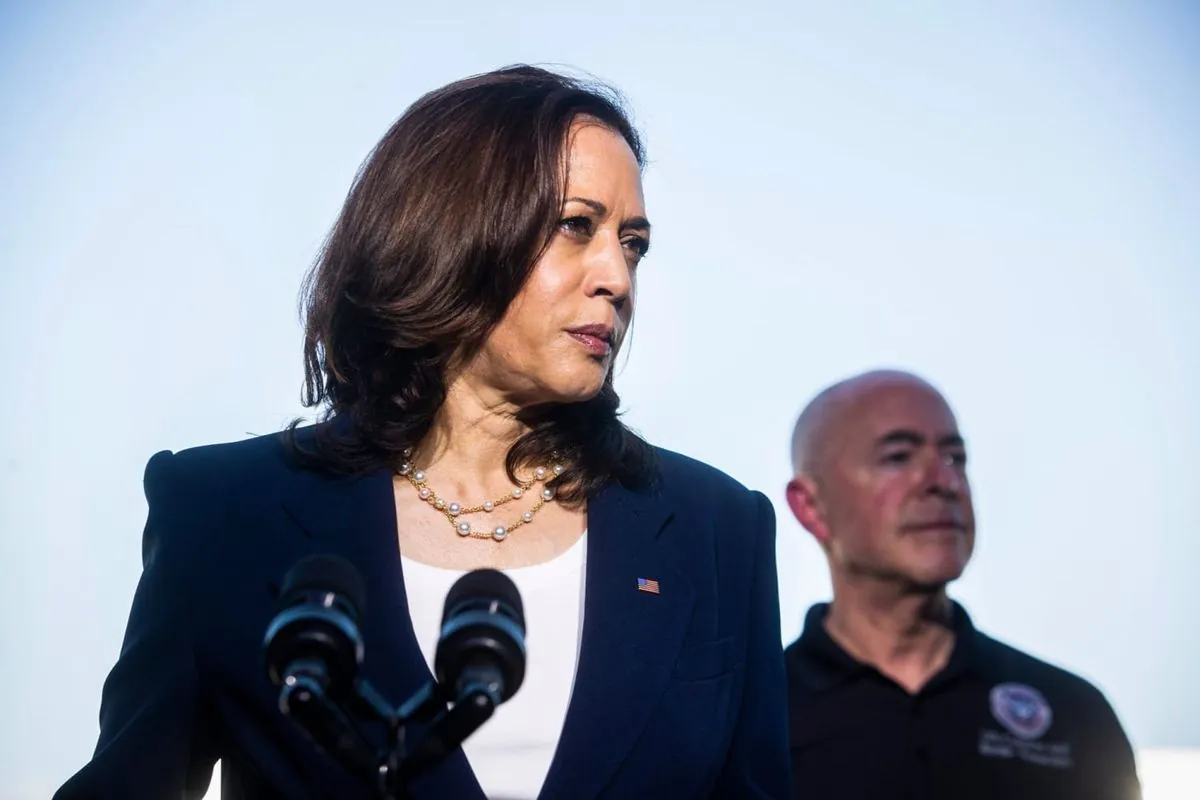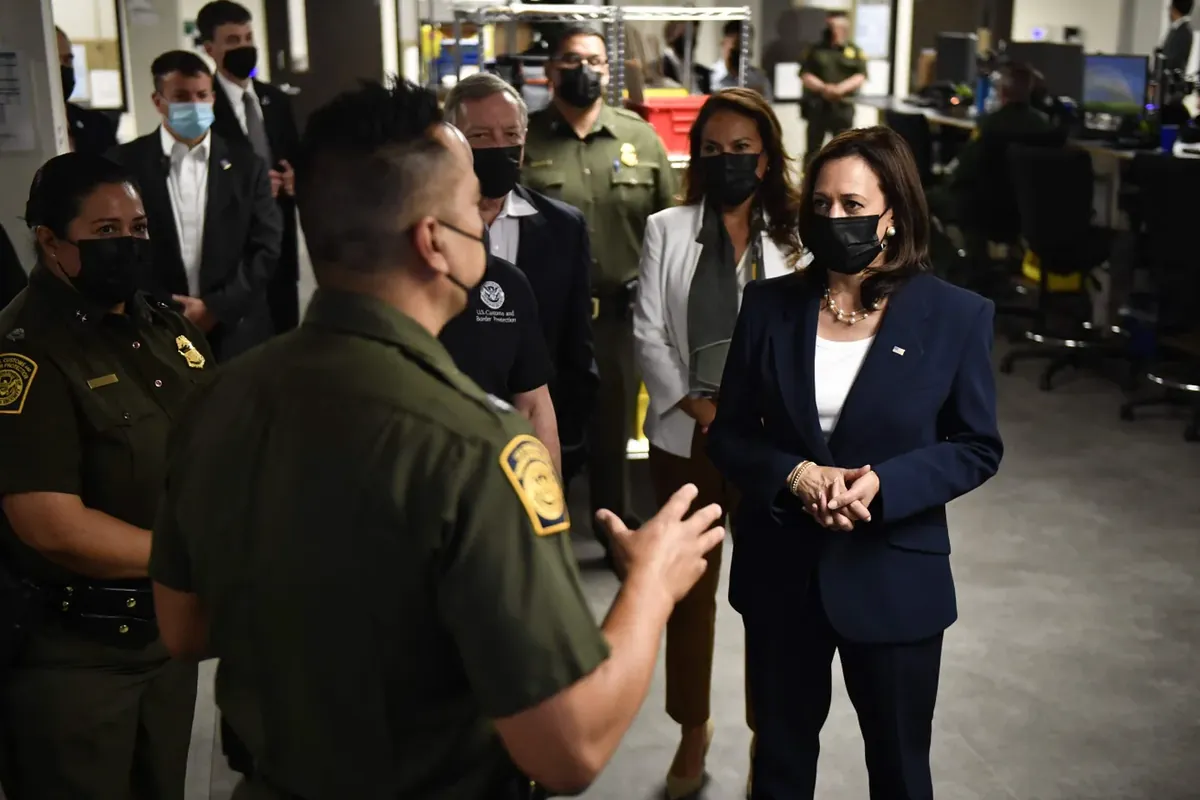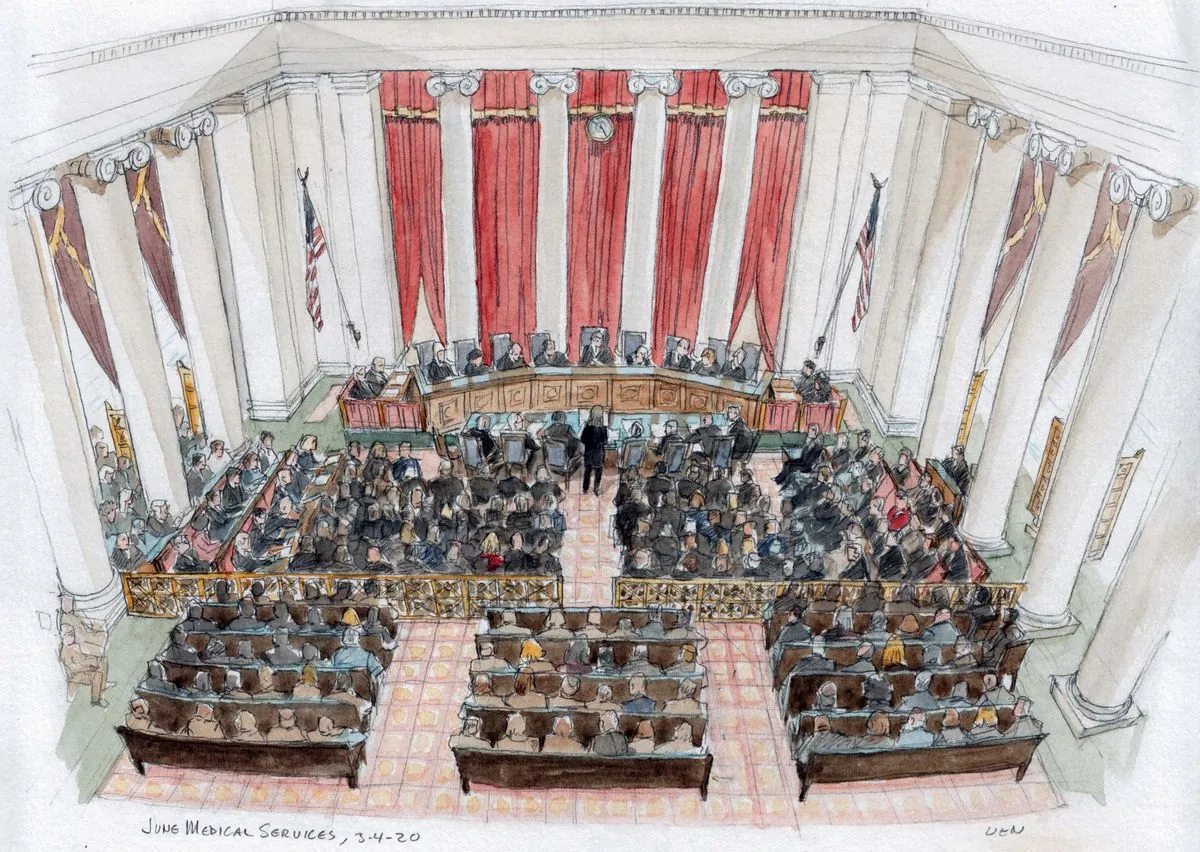Harris Shifts to Tougher Immigration Stance in Presidential Campaign
Vice President Kamala Harris adopts a stricter border security approach in her presidential campaign, diverging from earlier Democratic positions. Immigration advocates remain cautious, prioritizing Trump's defeat over policy criticism.

Vice President Kamala Harris has markedly shifted her stance on immigration as she campaigns for the presidency, emphasizing border security and enforcement measures. This change reflects the evolving political landscape surrounding immigration issues in the United States.
Harris, who previously advocated for more humane treatment of migrants and decriminalization of illegal border crossings during her 2019 presidential campaign, now pledges to enact "the toughest bipartisan border security bill in decades." This stark contrast to her earlier position has caught the attention of immigration advocates and political analysts alike.
The Vice President's current approach focuses on her law enforcement background, highlighting her efforts to combat transnational gangs and drug trafficking during her tenure as California's Attorney General from 2011 to 2017. Her campaign has even run advertisements featuring Harris in front of the border wall, portraying her as a "tough" leader on border control.
This shift in rhetoric comes as public sentiment on immigration has hardened. A poll released in August 2023 by the Chicago Council on Global Affairs revealed that 50% of Americans now view the influx of immigrants and refugees as a "critical threat" to U.S. interests, up from 42% in the previous fall.

Immigration advocates have largely refrained from publicly criticizing Harris's new stance, prioritizing the defeat of former President Donald Trump in the upcoming election. Trump's campaign has been characterized by anti-immigrant rhetoric and promises of mass deportations, which many advocates view as an existential threat to their cause.
"The threat that Trump represents is existential, so the first order of business is to make sure that he gets defeated. And come January, February of next year, we can have a conversation about the kind of policy interventions we'll need, hopefully under a Harris administration."
This strategic silence from advocacy groups extends beyond immigration to other liberal issues such as climate change, gun control, and criminal justice reform. Many organizations are accepting Harris's centrist shift as a necessary tactic to win over moderate voters, while planning to resume public lobbying should she win the presidency.
The debate within the Democratic Party regarding immigration policy is expected to resurface post-election. Some Democrats argue for embracing tougher border promises in recognition of changing public views, while others believe a more welcoming approach is fundamental to the party's identity.
It's worth noting that the U.S. has the largest immigrant population globally, with approximately 50.6 million as of 2022. The country's immigration policies have undergone significant changes over the years, from the Chinese Exclusion Act of 1882 to the Immigration and Nationality Act of 1965, which abolished national-origin quotas.
The current focus on border security is not without precedent. The U.S. Border Patrol, established in 1924, now employs over 19,000 agents. Additionally, the Department of Homeland Security, created in 2002 in response to the 9/11 attacks, plays a crucial role in immigration enforcement.
As the election approaches, the conversation about comprehensive immigration reform remains on hold. However, regardless of the outcome, a renewed debate on this complex issue is likely to emerge in the months following the inauguration of the next administration.


































